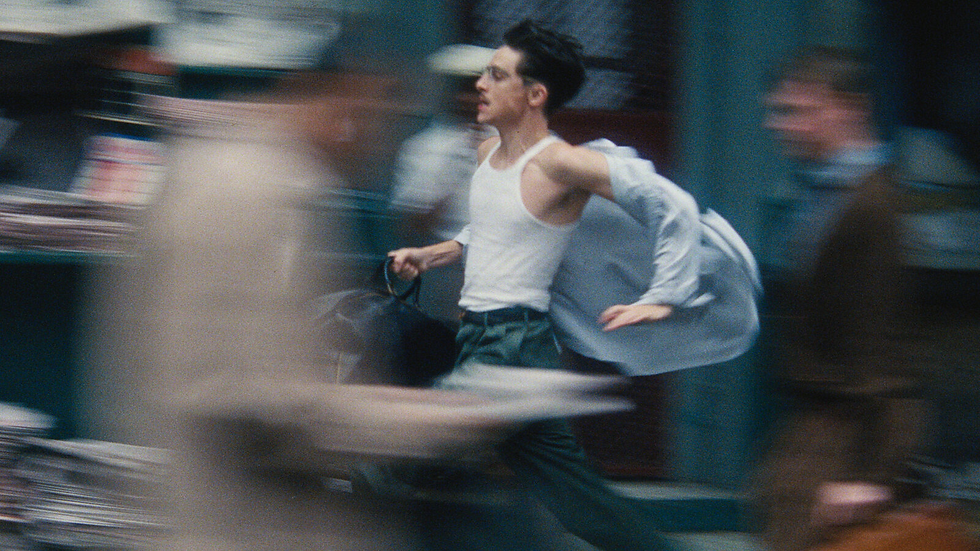"Karate Kid: Legends" - Not Even Jackie Chan is Immune to a Legacy Tie-In
- Eric Hardman

- May 31, 2025
- 4 min read
If nothing else, the Karate Kid franchise is a testament that truly any mildly critically acclaimed or profitable movie from thirty to forty years ago can get milked for all it’s worth. Aside from certain elements of the Jaden Smith remake and the first couple of seasons of Cobra Kai, there isn’t much of anything to latch onto with this IP, even for die-hard fans. From the moment Jackie Chan and Ralph Macchio debuted together in an open casting call announcement, there was clear desperation in the air. As far as the finished film is concerned, it feels, like most of these movies do, like it’s desperately clinging to the miniscule nostalgia the fans might still have for the previous installments, while having potentially the least amount of self-identity of anything released in this franchise to date.

Clocking in at a seemingly tight 94 minutes, the film completely whizzes past any sort of breathing room for every single scene. Before you even have time to process something in the story, the next scene is already halfway over, and you’ve fallen behind. Not that it’s a struggle to pick up on, because there aren’t any real surprises, but the truly breakneck pace of it all is borderline vertigo-inducing.
When looked back on as a whole, Karate Kid: Legends functions almost as three thirty-minute short films, with no connected through-line. At the start of the film, our main character, and nephew of Jackie Chan, Li Fong already appears to be a borderline Kung-Fu master, and can easily hold his own in any sort of altercation. The first third of the film functions as a messy, unfocused family drama as he and his mother move to New York under the guise that he’ll stop participating in Martial Arts. The only minor conflict at play in these moments aside from mild mother-son bickering is that the girl next door has a toxic on-again off-again situationship who’s also really good at Karate (where have we seen this one before?).
In the second act, the supposed Karate Kid functions as a master dojo for said girl-next-door’s ex-boxer father who he trains to fight better in the ring to beat out loan sharks to whom he owes a debt (yes, really). Finally, in the third act, Ralph Macchio and Jackie Chan finally start training Li Fong to fight in an infamous New York street karate tournament to fight the big, bad bully. If you’re wondering how on Earth they decided to cut all of this together, here’s the answer: a lot of wipes and montages to Benson Boone songs.

I do not envy the editors of the film because there is truly no scene in the script that services them to naturally bleed into the next, resulting in them being forced to experiment with unholily bad wipes, fades, dissolves, and basically every other iMovie transitional preset. They’ll even throw in Super Smash Bros. style animations to help moderate fight sequences just in case you’re unable to tell who’s being hit when. Not to mention the soundtrack, or score, which may be the worst of the year so far.
In terms of soul, or personality, there is nothing here that doesn’t feel heavily corporatized. The trailers do a fairly decent job at making the martial arts scenes look well put together, but they work better in the trailers than they do in the film. What’s most frustrating about them, is that they are actually beautifully choreographed, and there are several master shots utilized that look very well staged… but they can’t resist cutting away from them every 10 frames. If they just gave themselves the grace and confidence to let a shot stick, the action scenes may have been pretty spectacular…but alas.
The cast do their best with what they are given, and the best moments in the film are when Jackie Chan and Ralph Macchio are given room to banter and actually utilize their skills in the third act. Relative newcomers Ben Wang and Sadie Stanley have more than serviceable chemistry with one another and try their damndest to save the cheesiest moments in the film from becoming truly insufferable. I’ve been trying to find a way to articulate how cheesy the script is, and how even cheesier the direction is, but I figured I’d just let the film speak for itself: it ends with a freeze-frame callback to the original.

It’s far more difficult to be angry at something like this, because the franchise has already become so oversaturated, and the few genuinely good entries in it aren’t necessarily iconic and don’t mean a great deal to a lot of people. To semi-quote Shane Gillis, 'you ever just go to a friend’s house that has a 16-year-old ish dog that’s hanging on by its last thread, and you have to pretend it’s still cute, and enjoying life so you don’t make your friend sad?' Well, ladies and gents, meet that example’s newest cinematic equivalent.



